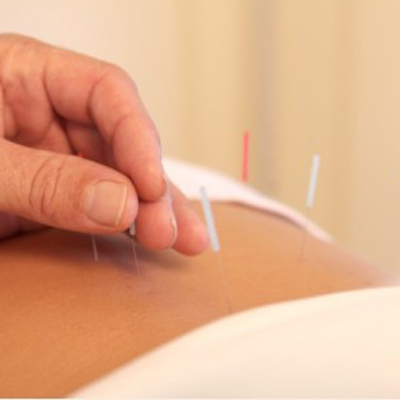
During pregnancy, your expanding uterus stretches and weakens your abdominal muscles and alters your posture, putting strain on your back. Plus, extra weight means more work for your muscles and increased stress on your joints.
What's more, hormonal changes in pregnancy can loosen the joints and the ligaments that attach your pelvic bones to your spine, which can make you feel less stable and cause pain when you walk, stand, sit for long periods, roll over in bed, get out of a low chair or the tub, bend, or lift things.
These changes don't go away overnight. So your back may continue to ache until your muscles regain their strength and tone and your joints become less lax.
You can also end up with a sore back as the result of a long or difficult labor. During labor you may have used muscles you don't normally use, and you'll feel the effects for some time. (If you had an epidural, you may notice some tenderness at the site for a few days after giving birth, but it shouldn't cause back pain.)
Also, many new moms inadvertently make their back problems worse by not being conscious of good posture while feeding their baby. For example, when you're learning how to breastfeed you may be so focused on getting your baby to latch on correctly that you end up sitting hunched over, straining your neck and upper back muscles as you look down.
The overall exhaustion and stress you may experience taking care of a newborn 24/7 can also make it harder to recover from aches and pains after childbirth, including back pain.
How long will it last?
It's common to have some back pain after giving birth. It usually resolves within a few months, though some women will continue to have pain for much longer.
Women who had back pain before or during pregnancy are more likely to have persistent back pain after pregnancy, particularly if their pain was severe or began relatively early in pregnancy. Being overweight increases the risk too.
What can I do about it?
While you may not be eager to be up and about if your back hurts, moving around may be just what your body needs. Exercises to strengthen your abdominal muscles and increase flexibility may be helpful too.
- Choose a gentle form of exercise, such as walking. Walking is safe to start almost immediately after either a vaginal birth or a cesarean section. Take it slowly and keep walks short in the first few weeks. (Swimming, which helps strengthen your muscles without putting undue stress on your joints, is another good option later on.)
- When your caregiver has given you the go-ahead, gradually start doing strengthening exercises for your back and abdominal muscles. Make pelvic tilts a part of your daily routine:
Lie on your back with your knees bent and your feet flat on the floor. Inhale and allow your belly to expand with your breath. Exhale and tilt your tailbone toward your belly button while keeping your hips on the floor. (It's a subtle movement.) At the top of the tilt, tighten your buttocks, then release. Repeat eight to ten times. (Note: If you've had a C-section, wait at least six to eight weeks to start exercises like this.)
- Do gentle stretching exercises or yoga. Avoid overstretching or extreme positions.
-
Listen to your body. If a particular position or activity causes you discomfort, stop.
Be aware of positioning and proper body mechanics:
How you hold your body – as you carry and feed your baby, for example – will surely affect how your back feels. A few things to keep in mind throughout the day:
- Pay attention to your posture and stand up straight.
- Sit up straight, too. Think about your posture when feeding your baby, whether you're nursing or bottle-feeding. If you have low back pain, try using a footstool to keep your feet slightly raised off the floor. Choose a comfortable chair with armrests, and use lots of pillows to give extra support to your back and arms.
- Learn how to position yourself properly while nursing, and always bring your baby to your breast, rather than the other way around. Also try different breastfeeding positions. If you have tense shoulders and upper back pain, the side-lying position may be most comfortable.
- Always bend from your knees and lift objects and children from a crouching position to minimize the stress on your back. Let someone else lift heavy objects – this isn't the time to risk throwing your back out. (If you've had a C-section, you shouldn't be lifting anything heavier than your baby for at least eight weeks.)
Easing soreness and tension and generally taking good care of yourself may help you heal. At the very least, it'll help you feel better temporarily. Take the time to try these measures:
- Enjoy a warm bath – it may help relax your muscles and the rest of you, too.
- Wrap a heating pad or hot pack around the affected area. (Some research suggests that it may provide a bit of short-term relief.)
If heat doesn't help, you might want to try a cold pack. Although there's no hard evidence that cold helps, it's easy to do, and there's no downside to trying. (Whether you use a hot pack or a cold one, cover it to protect your skin.)
- Treat yourself to a massage. It won't address the underlying source of your back pain, but it will help you relax and can temporarily soothe pulled muscles, tense shoulders, and lower back pain. If paying for a massage will strain your finances, try to enlist your partner or a friend to give you a rubdown.
- Learn relaxation techniques. They may help you cope with the discomfort and can be especially useful at bedtime.
By the way, don't forget to pay attention to your diet. Good nutrition will help your body heal faster, and a healthy diet – combined with exercise – is the ticket to losing any extra pounds that may be causing additional stress on your joints and back.
Are there other things to try if the above measures don't help enough?
Yes, but begin by letting your caregiver know if your back pain doesn't respond to the self-care measures above. She can evaluate your situation, discuss treatment options, and refer you to a specialist, if necessary.
Other options you might want to consider:
- Ibuprofen or acetaminophen may offer some temporary relief. Don't take more than recommended, and if you find you need them more than occasionally or they're not helping, talk to your caregiver. She may prescribe other medication as a short-term measure. (Let her know if you're breastfeeding.)
- Some back pain sufferers respond well to physical therapy. Plus, a physical therapist can teach you exercises to do on your own that will help prevent later episodes of low back pain.
- There's some evidence that acupuncture may be helpful in providing pain relief.
- Some women find that chiropractic care is helpful.
(Source: http://www.babycenter.com/0_postpartum-back-pain-how-to-get-relief_1152191.bc?showAll=true)











